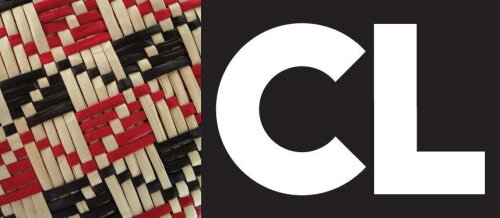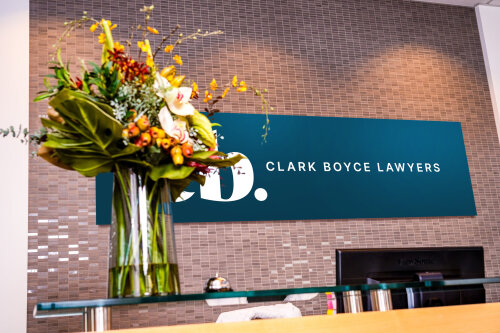Best Collaborative Law Lawyers in Christchurch
Share your needs with us, get contacted by law firms.
Free. Takes 2 min.
Free Guide to Hiring a Family Lawyer
List of the best lawyers in Christchurch, New Zealand
About Collaborative Law in Christchurch, New Zealand:
Collaborative Law in Christchurch, New Zealand, is a legal process where parties work together to resolve their disputes outside of court. This approach involves each person hiring their own lawyer and attending meetings to negotiate and find mutually acceptable solutions. Collaborative Law promotes cooperation and communication to reach agreements that benefit all parties involved.
Why You May Need a Lawyer:
You may need a lawyer in Collaborative Law to help you navigate the legal process, understand your rights and responsibilities, and advocate for your interests. Lawyers can provide valuable guidance, support, and representation to ensure you achieve a fair and satisfactory resolution to your dispute.
Local Laws Overview:
In Christchurch, New Zealand, Collaborative Law is governed by the Collaborative Practice Act 2014. This legislation outlines the requirements and procedures for Collaborative Law agreements, meetings, and resolutions. It is important to work with a lawyer who is familiar with local laws and practices to ensure your Collaborative Law process is conducted effectively and legally.
Frequently Asked Questions:
1. What is the difference between Collaborative Law and mediation?
Collaborative Law involves each party having their own lawyer who advocates for their interests, while mediation typically only involves a neutral mediator facilitating discussions between the parties.
2. How long does the Collaborative Law process usually take?
The duration of the Collaborative Law process varies depending on the complexity of the dispute and the willingness of the parties to cooperate. It can range from a few months to over a year.
3. What happens if we cannot reach an agreement through Collaborative Law?
If an agreement cannot be reached through Collaborative Law, the parties will need to seek alternative dispute resolution methods or pursue litigation in court.
4. Can I still use Collaborative Law if there is a history of conflict between the parties?
Collaborative Law is most effective when all parties are committed to working together, but it can still be used in situations with a history of conflict. The presence of lawyers can help manage and navigate these challenges.
5. Is Collaborative Law confidential?
Yes, Collaborative Law discussions and negotiations are confidential. However, any agreements reached may need to be filed with the court for approval.
6. How much does Collaborative Law cost?
The cost of Collaborative Law varies depending on the complexity of the case and the number of meetings required. It is important to discuss fees and payment structures with your lawyer before proceeding.
7. Can children be involved in the Collaborative Law process?
Children's interests and well-being are often a central focus in Collaborative Law. Child specialists or counselors may be involved to ensure the children's voices are heard and their needs are considered in the process.
8. Can I change lawyers during the Collaborative Law process?
It is possible to change lawyers during the Collaborative Law process, but it is important to consider the impact this may have on the progress and dynamics of the negotiations.
9. Are the agreements reached in Collaborative Law legally binding?
Once agreements are reached in Collaborative Law, they are typically drafted into legally binding documents that can be filed with the court for approval and enforcement.
10. Do both parties have to be willing to participate in Collaborative Law?
Yes, for Collaborative Law to be successful, both parties must be willing to participate in good faith and engage in open and honest communication to reach mutual agreements.
Additional Resources:
For more information on Collaborative Law in Christchurch, New Zealand, you can contact the Collaborative Law Association of Christchurch or the New Zealand Law Society for referral to local practitioners and resources.
Next Steps:
If you are considering Collaborative Law for your legal dispute in Christchurch, New Zealand, it is recommended to schedule a consultation with a qualified Collaborative Law lawyer to discuss your options and determine the best course of action for your situation.
Lawzana helps you find the best lawyers and law firms in Christchurch through a curated and pre-screened list of qualified legal professionals. Our platform offers rankings and detailed profiles of attorneys and law firms, allowing you to compare based on practice areas, including Collaborative Law, experience, and client feedback.
Each profile includes a description of the firm's areas of practice, client reviews, team members and partners, year of establishment, spoken languages, office locations, contact information, social media presence, and any published articles or resources. Most firms on our platform speak English and are experienced in both local and international legal matters.
Get a quote from top-rated law firms in Christchurch, New Zealand — quickly, securely, and without unnecessary hassle.
Disclaimer:
The information provided on this page is for general informational purposes only and does not constitute legal advice. While we strive to ensure the accuracy and relevance of the content, legal information may change over time, and interpretations of the law can vary. You should always consult with a qualified legal professional for advice specific to your situation.
We disclaim all liability for actions taken or not taken based on the content of this page. If you believe any information is incorrect or outdated, please contact us, and we will review and update it where appropriate.












